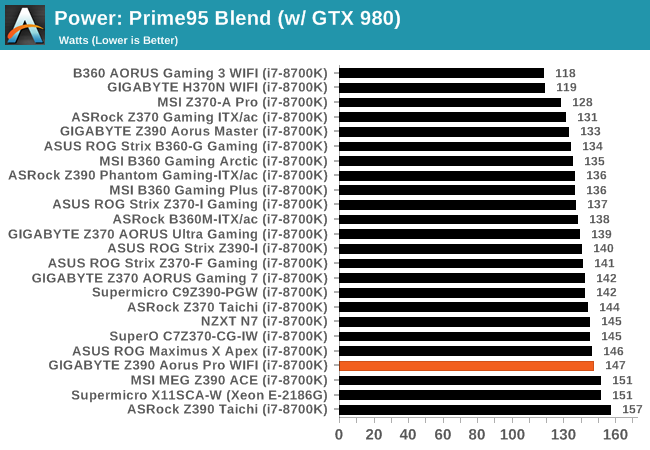It looks like it, doesn't it? See below.
The fact that you want to highlight the 9th gen's departure from the usual 1:1.25 PL1

L2 ratio is in fact the answer that seems to be eluding you, and which I've already argued. What number is Intel to aim against when AMD has no fixed power consumption number for PBO? Is it 105w? 150w? 210w? Okay, you tell us.
The 9900k was not released in a vacuum. It had the 8700k and the 2700x to contend with. It handled the 8700k easily due to superior binning, resulting in higher turbo profiles, and higher PL2 watts to support the higher turbos and higher core count - naturally.
I know the idea that Intel went with 210w PL2 due to the fact that a Ryzen 2700x
system can consume that much running multithreaded tasks may sound ridiculous. But as has been pointed out, AMD got clever by not exposing XFR2 and PBO consumption numbers as a fixed number. It simply leaves the overclocking up to the system based on thermal headroom. The result is that based on the cooler one opts to go with, these chips can push voltages up to 1.45+v, and
it shows. But what AMD doesn't say, can still be measured at the system level and that's important because at the end of the day it's platform against platform. So if you're Intel labs, what do you do about a platform that can pull 210w? You adjust accordingly. You don't pick 210w because the 2700x consumes 105w, you adjust to the levels you know the chip can consume given the right conditions, all based on your own simulations in the lab.
@Topweasel says 210w recommendation is to allow the 9900k to run at 4.7GHz all the time. But that's simply a case of the 9900k running into motherboard maker's
TAU=28 Seconds TAU=Unlimited. When properly configured, a 9900k should still turbo to 4.7GHz ACT (All Core Turbo), the only difference is that it'll be for not longer than 28 seconds (iirc), if operating conditions allow it to turbo that long in the first place. In any case, whether the 210w recomended PL2 review setting was to allow the 9900k to turbo all day or not, the aim is the same - to dominate the 2700x, which it does even with PL1 @ 95w.






